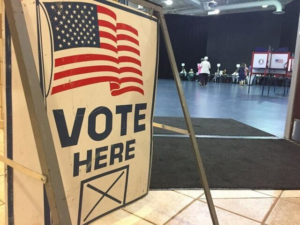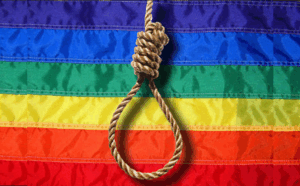In the 1980s, states decided to raise their drinking age to 21. Surprisingly, it wasn’t because of safety, public pressure, or even their own emotions. The main reason states raised the drinking age was because they risked losing 10% of their federal highway funds to the National Minimum Drinking Age Act (NMDAA). The Supreme Court called this a “relatively small” amount of money.
What would a lower drinking age cost society?
Losing highway funds might affect state governments, but it wouldn’t be a true “loss” to our society. It would just be money that belonged to the federal government instead of the state governments. The actual net loss for society would be 0. The better question is, what would be the real financial cost if all states lowered their drinking ages to 18? As far as I can tell, no one has seriously examined this question. We have some data, but we’re going to need a lot of guesswork.
| Financial Losses from Lowering the Drinking Age to 18 | |
| Revenue from fines would decrease. In the US, there were about 292,378 liquor law violations in 2015. We can guesstimate that about 3/4 of these arrests (220,000) resulted from under-21 drinking and its related crimes. Let’s say each arrest resulted in an average fine of around $500. 220,000 x $500 = $110 million in fines. The next question is, how much of this money would be lost by lowering the drinking age? Well, the population aged 18-21 (just under half the arrests) is about equal to the population that would no longer be arrested with a lower drinking age. That would decrease revenue by about $49.5 million. | -$49.5 million |
| Greater social cost. One study claims that under-21 drinking costs the country $61.9 billion a year. This comes from healthcare bills, lost quality of life, lost labor, crime, etc. So how might lowering the drinking age affect this number? There is no real way to know—you’d have to be God. But to get an idea, let’s try using traffic fatality trends as a representative sample of all social costs. Critics of Legal 18 argue that raising the drinking age reduced traffic fatalities (and presumably, associated costs) among drivers aged 18-21 by 13%. Unfortunately, it also raised fatalities among drivers aged 21-24. Taking this into account, one study actually estimates that lowering the drinking age would reduce overall traffic fatalities among all drivers aged 18-24 by about 2.7%. Other studies have found no significant change from the federal act. But since supporters of Legal 21 seem so sure, I’ll make a gesture of good faith. Let’s say that lowering the drinking age would increase all social costs of under-21 drinking by, say, 5%. This is a number I’ve conjured out of thin air. But it seems just as good as any other. $61.9 billion x 5% = $3.1 billion. | -$3.1 billion |
| Total | -$3.149 billion |
| Financial Gains from Lowering the Drinking Age to 18 | |
Spending on enforcement and prevention would decrease. I’ve done my best to estimate our country’s current spending on enforcing and preventing underage drinking:
|
+$1.863 billion |
| Spending on incarceration would decrease. It costs about $25,000 to keep one person in state or local jail for one year. As we estimated above, the US arrests about 220,000 people a year for crimes related to underage drinking. Just under half of these (99,000) are people aged 18-21. We can imagine that this is roughly the size of the population that would go free if the drinking age fell to 18. We can also guesstimate that on average, for every 25 underage drinking arrests, police sentence 1 year of jail time. 1 yr jail time/25 arrests x 99,000 arrests x $25,000/yr jail time = $99 million. | +$99 million |
| Police could address other crimes. Lowering the drinking age would free up a significant amount of police time, since underage drinking would no longer be a “top priority” for law enforcement. Presumably, this would increase the ability to address and prevent other costly crimes. For example, each robbery costs society $21,400. If lowering the drinking age freed up enough resources to prevent, on average, a single robbery in each city/town/village, this alone would save society $428 million. In all, new police priorities could save the country somewhere in the range of $1 billion. | +$1 billion |
| Revenue from taxes on the alcohol industry would increase. State and local governments collect $50 billion from the alcohol industry, half of which comes from indirect taxes, such as corporate, personal income, property, and other taxes. Meanwhile, the federal government collects $9.7 billion in excise taxes. Presumably, it also collects roughly another $9.7 billion in other taxes on the alcohol industry. About 10% ($7 billion) of the combined total comes from under-21 drinking. If lowering the drinking age increased social costs by 5%, as we guessed above, it would also probably increase consumption by at least 5%. 5% of $7 billion is $350 million. | +$350 million |
| Total | +$3.312 billion |
Lowering the drinking age might even be cost effective for states.
Federal highway funds represent so little money, they wouldn’t make much of a difference, compared to some of the other costs and savings we’ve looked at. To prove this point, let’s look at the case of North Carolina:
- My extremely rough estimate puts the country ahead by $162 million if every state lowered its drinking age to 18. By population, North Carolina would account for $5.4 million of this. Bear in mind that it’s not the exact number that matters here, but the order of magnitude.
- North Carolina’s total highway budget is $4.7 billion, 20% of which ($940 million) comes from the federal government. Since 2012, the percent congress threatens to withhold in the NMDAA decreased from 10% to 8% of federal highway funds. 8% of $940 million is $75 million.
- By lowering its drinking age, North Carolina would run a deficit of around $69.6 million. This is only 0.16% of North Carolina’s budget, or 11.6% of its ordinary spending increase between 2015 and 2016.
The finances could easily work.
There are a lot of reasons to want to lower the drinking age. Finances could easily be one of them. Although the numbers I’ve presented here are highly speculative, I hope I’ve at least shown that lowering the drinking age could be cost-effective, even if states lost their federal highway funds. Even if most of these numbers turn out to be way off, I doubt the end result would be much different. Society could recover even a relatively large net loss by increasing alcohol taxes or DUI fines.






I understand everything, I truly believe this law is not fair, I’m 19 and I will never drink and drive, I can lose my life and my vehicle that takes me to work and home. But I dont have the privilege, but I know quite some 21 yr olds that abuse the privilege and drink and drive anyway. The law “saves lives’. Not true, I can legally fight in the war but cant legally purchase a drink. There are alternatives, there are taxis, Uber, Lyft and other taxi companies that can take intoxicated people home. But yes, the law is not fair and being 21 does not make a person responsible, it doesnt.
Hi Abdul. On the contrary, the 21 drinking age law, while not perfect, does save lives. Those under 21, their brains are still developing. The part of the brain that seems to control impulsive decision making/behavior does not fully mature until their early to mid twenties, maybe more like mid twenties age range. Trust me on this, a 21 drinking age does save lives and the stats prove it. The endorsement of a 18/19 drinking age is dangerously naive and shortsighted. I definitely am opposed to lowering the drinking age to 18/19. 21 is the true way to go in regards to saving lives. Thank you.
Hello Randall. I understand what you mean when you say that people under 21 are still developing. However, 18 does legally make the child into an adult. See, when someone turns 18 they are granted all these rights such as voting, fighting in the war, get married, own firearms, etc. However, they are not allowed to purchase a drink because they are still developing. It’s either bump all of these things up to 21 or lower the drinking age to 18. People 18 and over and 21 and under are either a teenager or adults, not both.
While i agree with your statement, the problem with is that individuals who are 21 years of age also still have developing brains. Science has proved that your brain continues to develop until the age of 25 and in some cases as late as 27 years old. i do think the law saves lives to an extent because i have seen the numbers, but brain vulnerability is not a good argument.
So why not make the age 27?
I grew up in Alberta, Canada (18 year old drinking age) and have lived in the US for many years. In the context of college/university campuses, MLDA21 does not save lives. On the contrary, the drinking practices on US campuses are more dangerous, leading to more tragedies than a comparable place like Canada. Since most US States have a law on the books (medical amnesty) to protect people from another law on the books (MLDA21) — wouldn’t logic suggest that other law (MLDA21) shouldn’t be there? The decades-old transportation stats that Randall refers to above gets the causality wrong. Alcohol-related traffic deaths have declined in Canada in more than they have in the US. Because technological (air bags, etc) and cultural changes brought that rate down, not a lowering of the drinking age. Randall, how many people under the age of 55 do you know who waited until they were 21 before consuming alcohol for the first time? My guess is that number is something very close to zero — proving the inefficacy of MLDA21 and how it actually makes the early years of adulthood more dangerous, not less.
What about marijuana?
We should stop referring to 18-20-year-olds as “youth”. A youth is someone under 18 years of age, and using this term to refer to 18-20-year-olds only reinforces the view that they are not adults. This is the mistake “youth rights” campaigners keep making when arguing for a lower drinking age. Having the drinking age at 18 is NOT about youth rights, it’s about the rights of adults aged 18 to 20.
I was born in a country where the drinking age was 18. You had all rights and obligations, including the right to rent a car and the obligation to do national service. Equal rights for all means equal rights for all, not special rights for some, special disabilities for some and equal rights for some. If you’re old enough to lift a rifle, you’re old enough to lift a pint.
It is interesting that you bring up the issue of developing brains. Wouldn’t it make sense to raise the drinking age to 25? Why discriminate with only 18-21 year-olds? In fact, 21-24-year-olds have the highest drunk driving crash rates than any other age group.
In my opinion though, if you are legally considered an adult at 18 years of age you should be able to make decisions that are “bad” for you. 18-year-olds are entrusted with the right to vote, the right to get married, defend the nation in the army, own firearms, drive, enter into contracts, and serve on juries. They can be sentenced to adult prison or legally get the death penalty in the states that allow it. If we feel that 18 is too young, then all these things should be bumped to 21. It’s either you’re an adult or not.
Right on!
I agree with you when it comes to the law saving lives when it comes to drinking and driving to an extent. But I also don’t get how if when I turn 18, why do I have the right to choose who is in control of our country, but I can’t drink? I would be considered an adult and could fight for my country, but can’t have a drink? I could even change my legal name to whatever I want without parental consent, but yet again, I can’t drink? There are so many accidents when it comes to drinking and driving for ALL ages, not just underage.